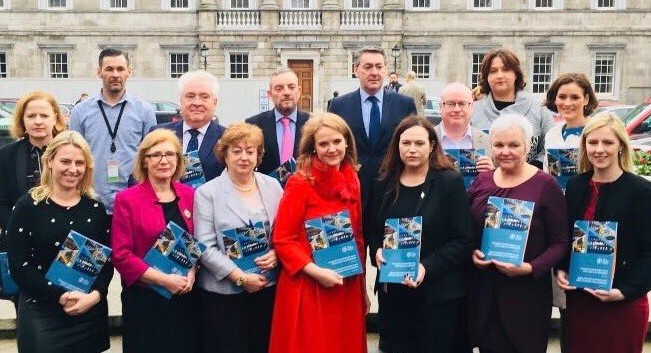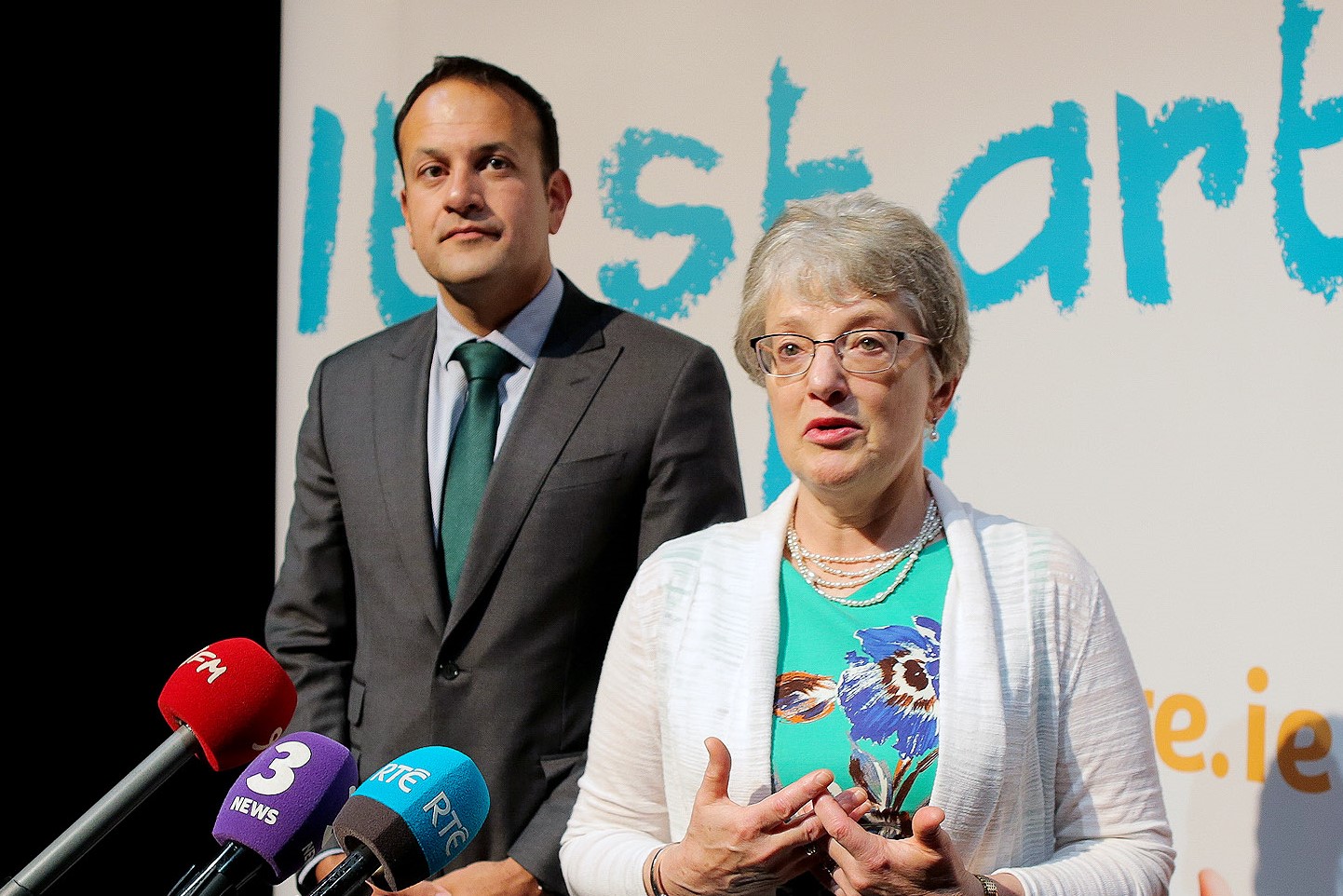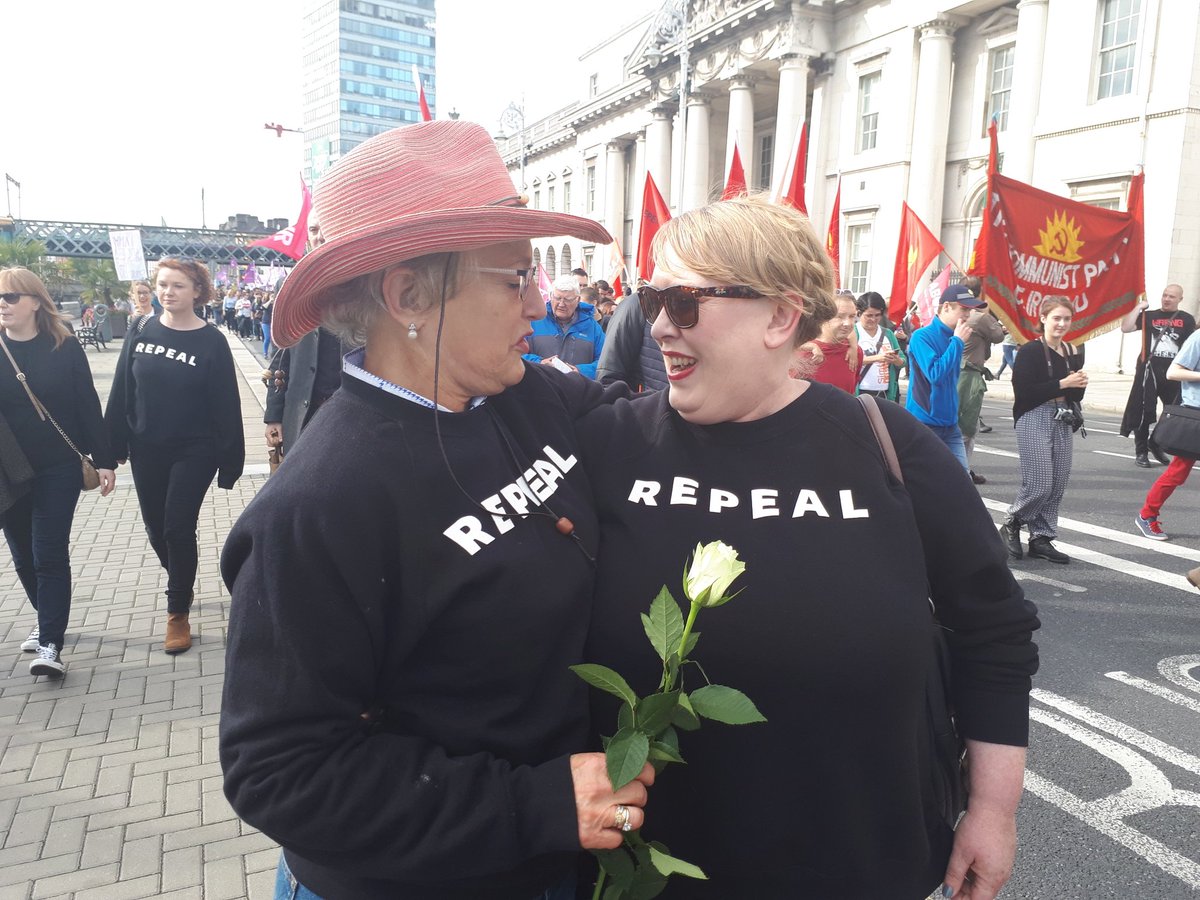
In a blunt speech to the Dáil yesterday, Katherine Zappone categorically ruled out support for replacing the 8th amendment with a provision designed to immunise abortion law from constitutional limits or judicial oversight. She also gave a strident defence of abortion up to birth and challenged the Taoiseach to articulate his views on the matter.
The Minister for Children told the assembled deputies that that while she is willing to listen to the views of legal experts and the Attorney General on the matter, she believes the eighth amendment must be repealed, plain and simple, and not replaced with another constitutional text. “I cannot and will not support any proposed text that would immunise legislation from judicial review and treat abortion as an almost unique matter within our constitutional system,” she said.
She voiced her support for unrestricted abortion up to 12 weeks and also for an extremely liberal regime after 12 weeks up until birth. She said she entirely rejected any suggestion that abortion should be limited to extreme cases after 12 weeks as that would not address “the socio-economic injustice of the eighth amendment”.
“Instead, we have to recognise the many impacts of pregnancy on women’s physical, mental and material well-being. Our new law must ensure that whenever a pregnant woman is of the view that continuing with pregnancy would damage her health and well-being, she would not be compelled to remain pregnant against her will.”
In a line that was widely interpreted as a challenge to the Taoiseach, Leo Varadkar, she said this was “a time for political courage, not political cowardice”, and called on all deputies to air their views. “This issue is too important for politicians to shirk their responsibilities. In the coming weeks the public has a right to hear the views of every Member of this House.”
Ms Zappone concluded her speech with her view that a new republic of equals would not come into being unless abortion were freely available. “If we are to be the republic to which we aspire, we must repeal the eighth amendment, make abortion lawfully available and commit ourselves fully to reproductive rights for all.”

President Michael D Higgins has said he is looking forward to welcoming Pope Francis to Ireland this August, while the Taoiseach told the Dáil that the Government is preparing for his arrival as though it were a State visit.
“This past year was yet another in his pontificate in which he offered his words of inspiration, hope and very necessary reminders of our shared obligations not only to humanity but to biodiversity on our planet,” said the President. He was speaking in Áras an Uachtaráin at a ceremony for ambassadors and consular representatives to Ireland. In particular, he welcomed Dean of the Diplomatic Corps Archbishop Jude Okolo, who was recently appointed papal nuncio to Ireland. He said the Archbishop was “the representative of a papacy that has made such a vital contribution to the dialogue we urgently need on the immense threats to our shared but increasingly vulnerable planet – threats which constitute nothing less than an ‘ecological crisis’.”
Meanwhile in the Dáil, the Taoiseach Leo Varadkar said the Government is preparing for the coming of Pope Francis as if it were a State visit. He said “even though it is not formally a State visit the assistance provided to Pope Francis will be the same as if it were. So Pope Francis will be given the full supports of the State in terms of protocol, security and any other matters.” In response to questions from the Sinn Féin leader Gerry Adams and Labour leader Brendan Howlin, the Taoiseach said his Department, “is assisting the Church authorities in the organisation and preparation to be made for that visit”. Regarding the possibility of a visit to the North, he said that “I understand from Archbishop (Diarmuid) Martin that the Pope’s major interest in the visit is attending at the World Meeting of Families” and events associated with that. “Any decision on whether he visits Northern Ireland is of course a matter for him and the Vatican.”
Pope Francis is scheduled to visit Dublin in August for the World Meeting of Families.
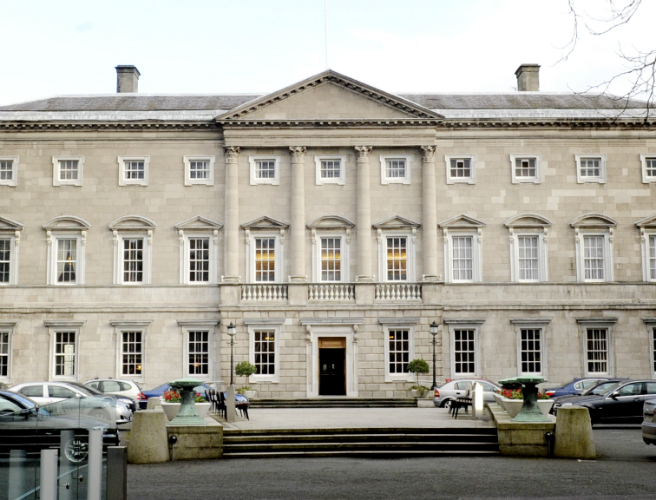
The Government is expected to back a controversial replacement text for the pro-life amendment that would immunise the Oireachtas from any oversight of the Courts or any Constitutional limits to its power to legislate for abortion. The idea was mooted last week when it emerged that advice of the Attorney General was “likely” to suggest this unprecedented approach. However, now the Irish Times is reporting that the Government “is expected” to adopt this approach and will confirm their decision at a special cabinet meeting next meeting. Separately, it is being reported that the advice of the Attorney general pushing for this option will not be released to the public.
The “immunising provision” was recommended by the Citizens’ Assembly, but rejected by the Oireachtas committee on the Eighth amendment. The Government, however, resurrected the idea even though it is a more radical proposal than the Committee’s recommendation of simply deleting the Eighth amendment.
The only thing akin to an “immunising provision” in the Constitution are the emergency powers accorded the Oireachtas in times of war to pass legislation without constitutional oversight.

The American Chamber of Commerce Ireland – which represents 700 US firms such as Facebook and Google – is seeking to change the admissions policies of faith-based schools in Ireland so as to make the country more attractive for a multinational workforce.
In a submission to the Department of Education, the Chamber said it “strongly supports moves to improve education access and remove barriers to schools admissions as an integral part of policy seeking to strengthen inclusiveness within the country”.
Speaking in terms of showcasing a “warm welcome and openness to the world”, the public affairs Diretor, Brian Cotter, wrote, “Ensuring that our education system has an access for all approach and barriers are removed are integral to highlighting our inclusive society”.
The letter reveals no awareness that changes to schools’ admissions policies would not create a single extra place for children in schools that are already oversubscribed.
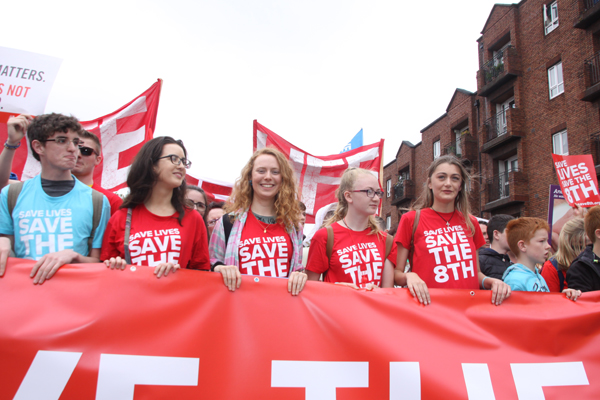
Door-to-door canvassing and social media engagement will be the mainstay of efforts by pro-life groups to keep the Eighth Amendment in the Constitution. The groups say they have made the decision because they feel shut out of the abortion referendum debate by much of the media and the political establishment. “We never ever hear about the thousands of lives saved every year by the Eighth Amendment. We just never see that talked about,” says Cora Sherlock of the Pro-Life Campaign. The groups are canvassing every weekend, campaigners say, and some local groups have been doing so for months. “To us the ground campaign is the most important thing . . . that’s where we’re concentrating our members,” says Niamh Uí Bhriain, spokeswoman for the Life Institute, an anti-abortion group.
A similar complaint was also made by pro-life Fianna Fail deputies who say that their pro-choice colleagues are getting more than their fair share of media time. Carlow-Kilkenny TD, Bobby Aylward, organised a meeting of “like-minded” FF TDs and senators yesterday at which he said “A lot feel we are not getting our view put across [in the media]. We want our fair share.” Eamon Ó Cuív TD strongly criticised “unelected officials” in the party for selecting certain individuals for media interviews. There was a view expressed that only TDs who were close with the leader were chosen to appear in the broadcast media.
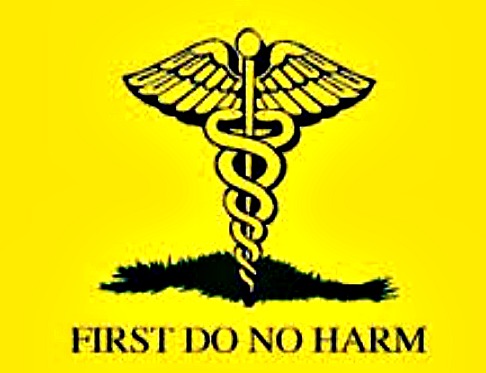
Belgian nurses and social workers who specialise in treating dying patients are quitting their jobs because palliative care units are being turned into “houses of euthanasia”, a senior doctor has said. Increasing numbers of hospital staff employed in the palliative care sector are abandoning their posts because they did not wish to be reduced to preparing “patients and their families for lethal injections”, according to Professor Benoit Beuselinck, a consultant oncologist of the Catholic University Hospitals of Leuven. He said that after more than 15 years of legal euthanasia in Belgium “palliative care units are … at risk of becoming ‘houses of euthanasia’, which is the opposite of what they were meant to be”. Prof Beuselinck said palliative care nurses found the demands for euthanasia an “impossible burden” and a “complete contradiction of their initial desire to administer genuine palliative care to terminally ill patients”.
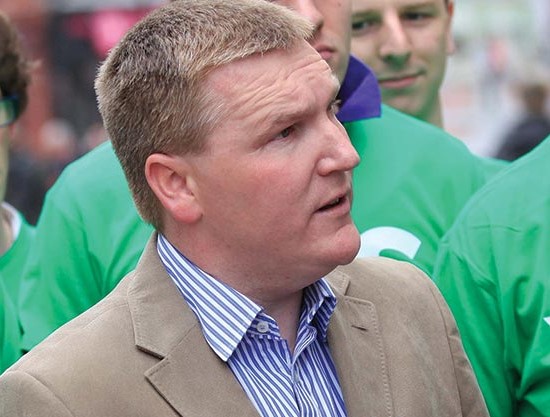
Fianna Fáil Spokesman on Finance Michael McGrath has confirmed he will not support repealing the Eighth Amendment to allow for a widespread abortion regime, branding the proposal made by the Oireachtas committee on the Eighth Amendment as a step too far.
Speaking on Today with Sean O’Rourke on RTÉ radio, Mr McGrath indicated he would support amending the Constitution to allow for terminations in certain cases but insisted the rights of the unborn should not be removed. “I think it is inevitable now that there will be a referendum and I support the holding a referendum. But if the referendum is asking the question that there should be a straight forward repeal of the Eighth Amendment with the intention of replacing with legislation providing for unrestricted access to abortion up to twelve weeks, then that is not something that I can personally support. I think it is a step too far.”

A pro-euthanasia medical ethicist has resigned from a Dutch regional assessment committee for euthanasia due to the expanding interpretation of a law which allows non-consenting, dementia patients to be euthanised. For ten years Berna van Baarsen helped to assess whether euthanasia had been performed in accordance with the law in the North Holland region. She resigned on January 1. “’I do not believe that a written declaration of intent can replace an oral request for incapacitated patients with advanced dementia,” she told the magazine Medisch Contact. Under Article 2.2 of the Dutch euthanasia law, a doctor may euthanize a patient who can no longer make clear what he wants, but who had previously left a written declaration consenting to euthanasia. Van Baarsen is not the only member of a euthanasia review committee to resign over the interpretation of the law. Three years ago ethicist Theo Boer also stepped down and has become a harsh critic of the Dutch euthanasia system.
